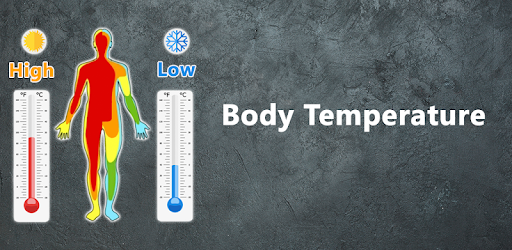Research Shows That Average Normal Body Temperature Is Decreasing and No Longer 98.6 Degrees Fahrenheit
Source : Thailand Medical News Jan 26, 2020 5 years, 10 months, 2 weeks, 6 days, 8 hours, 49 minutes ago
For more than two centuries, 98.6 degrees Fahrenheit (37 C) was said to be the average,
normal human
body temperature. However new research is claiming it is not.

Researchers recently have known that
normal body temperature is actually lower than 98.6 and can vary by gender, size, age, time of day and other factors. But now there's also new evidence that shows we've been cooling off since the 19th century when 98.6 was established as "normal."
The new research published in eLife, shows
body temperature has not only dropped since German physician Carl Reinhold August Wunderlich's study in 1851 established the average
body temperature as 98.6 degrees, but it has also dropped since the 1970s. The findings indicate that the individuals' average,
normal body temperature has dropped about 0.05 degrees Fahrenheit (0.03 C) per decade, based on their birth year.
Dr Julie Parsonnet, one of the authors of the study and Professor of medicine at Stanford University told
Thailand Medical News, "People are stuck on the 98.6 number, but that number has always been wrong. There's never been a real number because people vary."
But Dr Parsonnet's research indicates there are still unknowns when it comes to the continued decrease in
body temperature.
In the study, Dr Parsonnet and other researchers looked at the
temperatures of three groups: data from a study that recorded Civil War veterans'
temperatures from the mid-1800s through 1930, more recent data from the 1970s recorded by the Centers for Disease Control, and
temperatures of patients visiting Stanford health clinics from 2007 to 2017.
The analyzed data showed that the
body temperature of men born in the 2000s is about 1.06 degrees Fahrenheit lower than men born in the early 1800s. And the
body temperature of women born in the 2000s is on average 0.58 degrees Fahrenheit lower than women born in the 1890s.
Dr Parsonnet added, “This means it's not just an ancient change, indicating previous theories that advancements in thermometers or means of calculating research data are not the only possible explanations for the change.”
Dr Parsonnet commented that it is unclear what exactly is causing the continued decline, or what it could mean moving forward. Some factors could be that people have grown taller and heavier, and that their metabolic rates have slowed.
Furthermore, modern medicine's elimination of certain diseases, like
syphilis, tuberculosis and periodontal diseases also could affect changes in
body temperature, she said. When the original 98.6-degree normal was established, a significant portion of the population would've been fighting these diseases, D
r Parsonnet said, which cause inflammation and higher
temperatures.
It is critical to find out why, she added, because it could affect lifespan. "We are having human cooling, and we don't know what that means, but it's good to know that it's happening."
However physicians say evidence of declining
temperature is not likely to change how they treat and assess patients for fever, though Parsonnet said it emphasizes that people should pay attention to how they feel and not just the number on the thermometer.
An emergency medicine physician at Rush University Medical Center, Dr. Edward Ward, said he doesn't give a lot of weight to what could be considered
normal temperature, instead focusing on extremes, including above 100 degrees Fahrenheit indicating a fever and below 94 degrees indicating hypothermia. "It's not surprising that there will be changes (in
normal body temperature) since the Industrial Revolution," he said. "As an ER doctor, I'm looking for abnormalities."
Dr Ward also pointed out that there's "a difference between having what is medically considered a fever and feeling feverish. If someone is normally 96 and then suddenly they're 99, they probably feel uncomfortable." That can indicate illness and the need for medications like acetaminophen or ibuprofen, especially for higher
temperatures that indicate influenza, he added.
Reference: Decreasing human body temperature in the United States since the Industrial Revolution, Myroslava Protsiv, Catherine Ley, Joanna Lankester, Trevor Hastie, Julie Parsonnet , eLife 2020;9:e49555 DOI: 10.7554/eLife.49555 